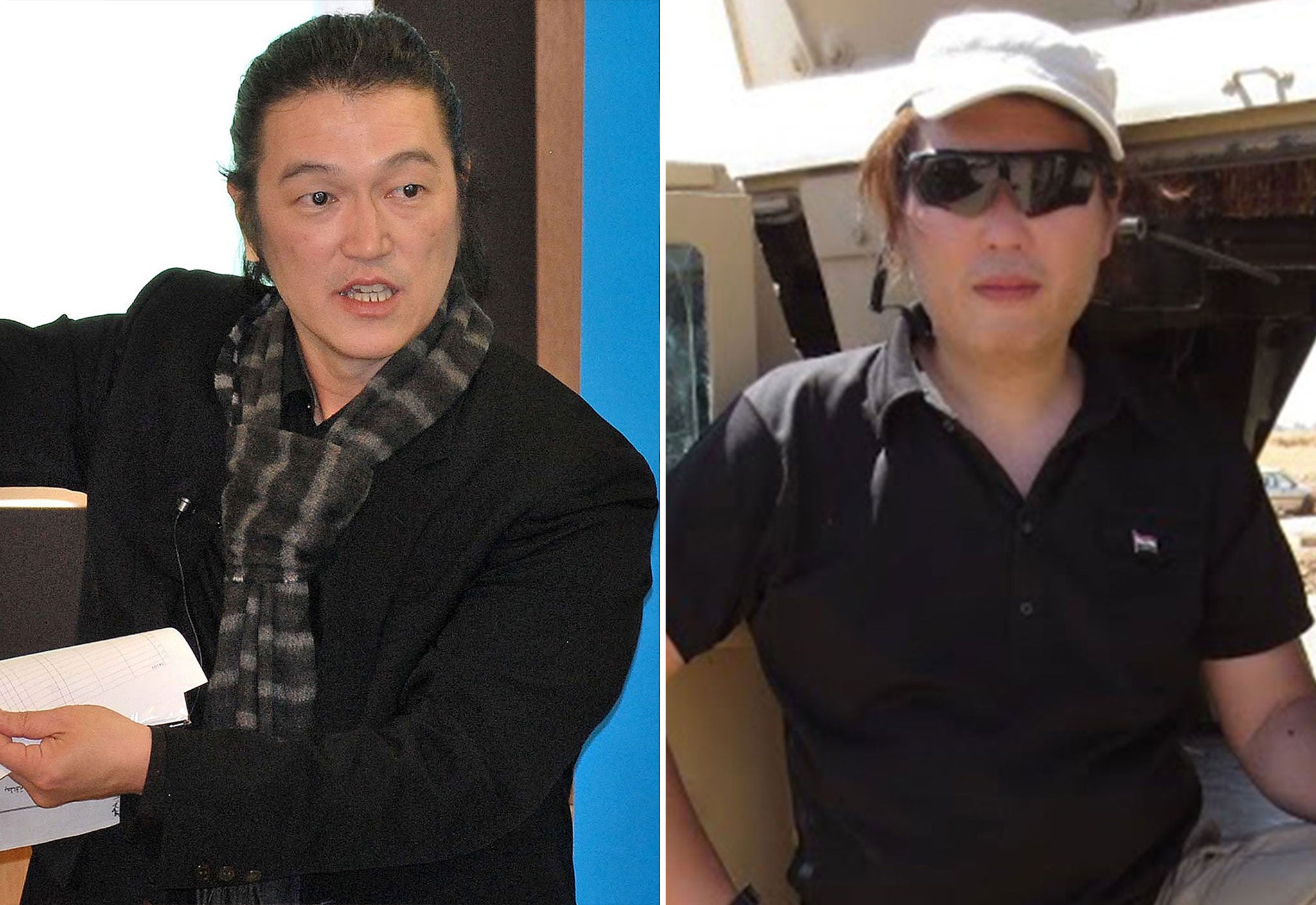Isis Japanese hostages: Video purports to show Haruna Yukawa executed and second hostage Kenji Goto with new terms for his release
Uncertainty surrounds message demanding prisoner exchange

Your support helps us to tell the story
From reproductive rights to climate change to Big Tech, The Independent is on the ground when the story is developing. Whether it's investigating the financials of Elon Musk's pro-Trump PAC or producing our latest documentary, 'The A Word', which shines a light on the American women fighting for reproductive rights, we know how important it is to parse out the facts from the messaging.
At such a critical moment in US history, we need reporters on the ground. Your donation allows us to keep sending journalists to speak to both sides of the story.
The Independent is trusted by Americans across the entire political spectrum. And unlike many other quality news outlets, we choose not to lock Americans out of our reporting and analysis with paywalls. We believe quality journalism should be available to everyone, paid for by those who can afford it.
Your support makes all the difference.The Japanese government has expressed “outrage” at the emergence of a video which purports to show the killing of one of two of its citizens being held hostage by Islamic State (Isis) in Syria.
Officials are desperately trying to verify the message as the Prime Minister, Shinzo Abe, insisted that the country would never bow down to terrorism, and called for the release of the two men.
“I have a strong sense of anger,” Mr Abe said after an emergency cabinet meeting to discuss the crisis and determine the veracity of the video message. “We will not give in to terrorism,” he said, adding that the alleged killing was “an outrageous and unacceptable act of violence”.
The three-minute message differs from previous communications posted by the group. It shows a single, still image of 47-year-old Kenji Goto holding a photograph of what appears to be the body of 42-year-old Haruna Yukawa. Audio of Mr Goto speaking in English is played, where he demands a prisoner exchange to save his own life.
David Cameron said: “The reported brutal murder of Haruna Yukawa and the further threats made by Isis are yet another reminder of the murderous barbarity of these terrorists. Britain stands in solidarity with the Japanese people at this difficult time and we will continue to offer the Japanese government all possible assistance.”
Last year, Isis released videos showing the murder in a desert location of British hostages David Haines and Alan Henning, as well as US citizens James Foley, Steven Sotloff and Abdul-Rahman Kassig. Mr Yukawa was seized by militants in August, after he went to Syria in what he described as a plan to launch a security company. Mr Goto, a veteran war correspondent, went too, apparently against advice, as he felt a responsibility for his friend Mr Yukawa.
Isis, which controls vast swathes of both Syria and Iraq, had threatened on Tuesday to kill both hostages within 72 hours unless it received a $200m (£133m) ransom, a demand that now seems to have been dropped. That deadline passed on Friday with no word on the two hostages from their captors.
However, there appeared to be some confusion over the authenticity of the video, which appeared online and then seemed to be deleted. One militant on a website affiliated with Isis said the message was a fake, while another said it was intended to go only to the Japanese journalist’s family. A third noted that the video was not issued by al-Furqan, which is one of the media arms of Isis and has issued past videos involving hostages and beheadings.
Before the release of the message, The Japan Times had claimed it had a source saying both hostages were still alive yesterday. This claim could also not be verified.
Obtaining intelligence from Isis-held territories has proven difficult for Japan after its diplomats left Syria as the civil war there escalated.
Patrick Ventrell, a spokesman for the US National Security Council, said its intelligence officials were also working to confirm whether the new message was authentic. “We stand in solidarity with Japan and are co-ordinating closely,” he said.
The audio requested that Sajida Mubarak Atrous al-Rishawi be released from a Jordanian prison. Al-Rishawi was convicted of taking part in a suicide bombing of the Jordanian capital Amman in 2005, along with her husband, which killed scores of people. Her suicide belt failed to go off. She has apparent connections, believed to be through her brother, to al-Qaeda in Iraq.
Japanese officials have not yet said if they will pay a ransom.
Mr Abe was said to have called the two hostages’ families.
Join our commenting forum
Join thought-provoking conversations, follow other Independent readers and see their replies
Comments